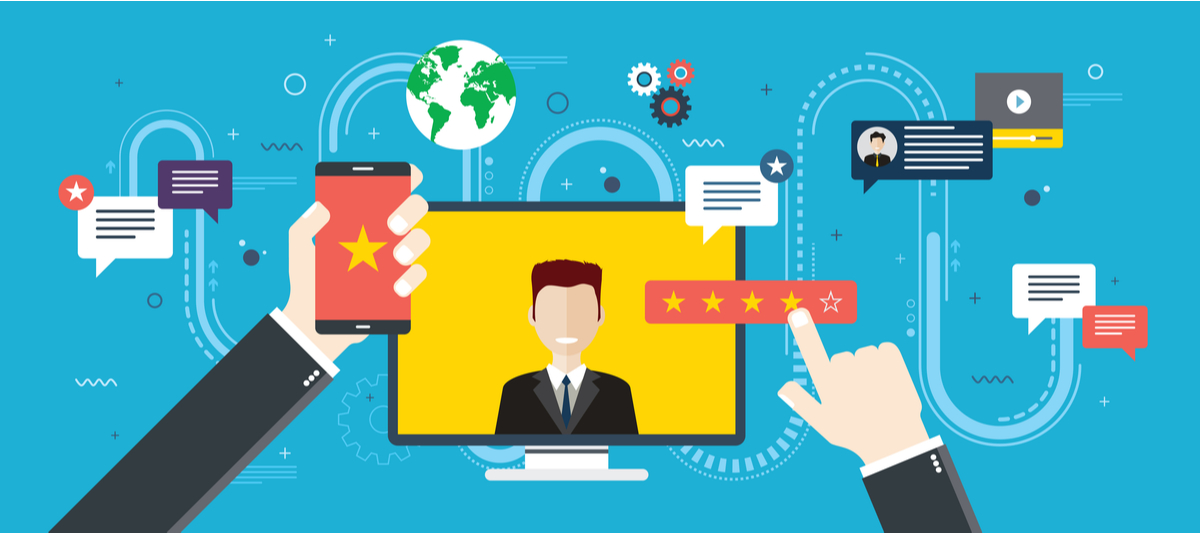Differentiate with digital: Become consumer-centric but brand-led and technologically inspired

In this contribution, Laurence Parkes, CEO of Rufus Leonard, delves into differentiating with your digital experiences, highlighting that while you may believe your digital experiences are superior, your consumers are thinking otherwise.
Never before has the digital realm been so fundamental to how a brand delivers its unique brand promise. In a world of accelerating disruption, organisations are looking for ways to rapidly create sustainable competitive advantage. Unfortunately, while 80% of companies believe they deliver ‘superior experiences’, only 8% of customers agree (Bain & Co.) They strive towards CX best practice, where competing brands solve customer problems in the same way, has created a market of digital sameness. But dependency on CX best practice is not the only challenge to overcome. There is also platform fragmentation, organisational silos, and a lack of business logic ownership to contend with. Laurence Parkes, CEO of independent digital experience agency, Rufus Leonard, shares how brands can tackle this complexity to create meaningfully different digital experiences that drive sustained competitive advantage, resilience and growth for organisations.
Anchor your visionary experience on insightful user needs
Balancing the primacy of the consumer versus technology or brand thinking is difficult to achieve but highly rewarding when unlocked. In other words, define your visionary experience based on insightful user needs, hung from a clear brand strategy. Actionable considerations:
- In the face of increasing complexity, a clear sense of purpose (inspired by your brand story) can both simplify and pull together disparity when designing your digital ecosystem. Distil your consumer research, competitive analysis and brand strategy into well-defined experience principles.
- Find strength in a blended team of strategists, designers and technologists, all with an equal ‘voice’. This will help you find the right balance between consumer needs, brand experience, and the technology that enables it.
- Your brand hero moments are what shape the distinctive experiences that matter to your customers. Use key audience needs and motivations to identify the pain points that need improving but overlay your brand promise, values and personality to identify the brand hero moments that will deliver the greatest short- and long-term commercial impact.
Gain control over your enabling technologies
To drive your differentiating digital experience, you need to connect consumer understanding and technological possibilities. Fundamentally, connecting your brand purpose with your tech stack. Actionable considerations:
- By connecting and powering the experiences your CMO craves, with tools and systems from your CIO, you can deliver differentiation. Bring your CMO and CIO together by aligning around your brand vision to help focus and prioritise.
- With technology enabling the efficient creation of value to customers, increasingly the tech platform is the business. Your Experience Services Architecture should be containerised and portable, so you own your business logic – releasing you from having to use a particular vendor. This way your brand’s experience roadmap is not tied to that of an uncontrolled third party.
- Plan for future innovations with your cloud-based Experience Services Architecture. This will accelerate your innovation pipeline as you’ll have control over a critical component of your digital infrastructure. Enabled by this technology, our client was able to add a brand-new channel to their experience ecosystem in a matter of weeks, with our Omnichannel Experience API.
Support your vision with a clear and convincing business plan
A powerful business case will push action through an organisation. Even better, an Experience Playbook will create an inspiring blueprint that outlines the impact of hero moments on the bottom line as well as the technical infrastructure needed to deliver them; becoming a tool that translates business strategy into meaningfully differentiated customer experiences. Actionable considerations:
- Establish a backlog of ideas and experience concepts to explore, rationalise and prioritise. Assessing potential impact versus required effort to implement, identify the quick wins and immediate actions, and sequence the rest into a roadmap.
- ROI is key in these times. You can measure the potential commercial impact of your experience concepts at a conversion and brand equity level. Conversion level example: calculate the lost revenue from unnecessarily abandoned shopping carts. Brand equity level example: estimate the likely increase in brand perception and future purchase intent from a best-in-class experience.
- Align your technology roadmap and ensure the requirements are a joint responsibility between both your CMO and CIO. This is another important opportunity to align the organisation.
Your key takeaway
These guides are useful regardless of if you’re a large, established brand struggling with legacy issues or a nimble scale-up trying to keep pace with your rapid growth. To differentiate with digital, you must look holistically at your organisation’s complete ecosystem, encompassing the four engines of difference: brand, services, people and technology. From this, you’ll deliver meaningfully different experiences because they are consumer-centric, brand-led and technologically inspired.
